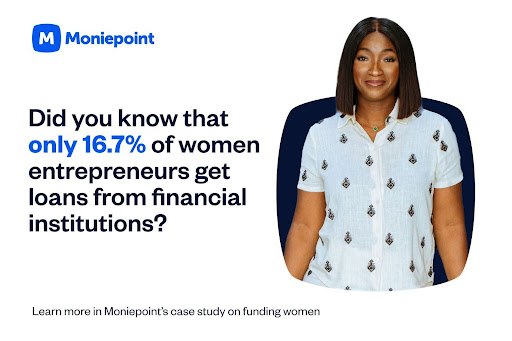

Happy Thursday!☀️
It looks like digital cameras from the early 2000s are making a surprising comeback globally, especially among Gen Z. Nostalgia and the appeal of simpler, lower-resolution photography have sparked renewed interest in devices like the Nikon Coolpix and Canon PowerShot.
Young people are embracing retro tech as a fun contrast to the flawless images of smartphones, creating a fresh wave of digital camera fans. What cool art will you create with a 2011 camera?
Speaking of cool, companies are using new ways to capture carbon in the air and storing it underground, reducing the expensive process by nearly one-third. This is definitely useful technology for fossil-burning companies like South Africa’s Eskom that burns coal to generate electricity. Cool.

Companies
Jumia to exit South Africa and Tunisia

Jumia will exit South Africa and Tunisia by the end of 2024 to focus on its West and East African markets. Both countries have contributed little to the company’s overall performance, with South Africa accounting for just 3.5% of total orders in H1 2024 and Tunisia bringing in only 2.7%.
South Africa’s e-commerce market is mature and competitive. With about 1,995 startups and bigger players like Takealot and Amazon, customers are flush with options
With high competition and little differentiation, customers likely saw Jumia as just another platform. Amazon, which entered South Africa in May, gained popularity among users because it sold rare books.
In Tunisia, the e-commerce market has lesser competition, yet, a lack of trust still poses a problem with many consumers preferring to pay cash on delivery for products.
Exiting those regions is on-brand for Jumia which has been streamlining its business over the past year, shutting down Jumia Food, cutting headcount, and refocusing its business from a previous focus on small ticket items.
By focusing on more promising markets like Nigeria and Egypt, Jumia wants to rebuild investor confidence after seeing a drop in its total order value to $170 million in Q2 2024.
110 jobs could either be cut from Jumia’s South Africa and Tunisia exits, or the affected workers moved to other countries where the company still operates. In its search for profitability, it is clear that Jumia only wants winners.
Read Moniepoint’s Case Study on Funding Women

After losing their mother, Azeezat and her siblings struggled to keep Olaiya Foods afloat. Now, with Moniepoint, they’re transforming Nigeria’s local buka scene. Click here for a deep dive into how Moniepoint is helping her and other women entrepreneurs overcome their funding challenges.
Funding
Yellow Card raises $33 million in series C funding

Yellow Card, an Africa-focused crypto startup that operates in 20 countries, has raised $33 million in series C funding. This is the company’s third funding in four years, after its $40 million series B cash pull, and $1.5 million seed raise in 2022 and 2020 respectively. Yellow Card is now Africa’s most-funded crypto startup.
The company spent its last funding on building its API product, making new hires—especially on its compliance teams—and expanding into other countries. It also claimed that it grew its revenue during this period, but declined to share the figures.
With the new funding, the startup will strengthen partnerships with its tech infrastructure service providers in the US, like Fireblocks, as well as scale its B2B API product, which allows businesses to offer crypto on-ramp and off-ramp services to customers. With this product, Yellow Card wants to lead stablecoin adoption in Africa.
The startup will also expand into four African countries in the next few months, including Ethiopia, Egypt and Morocco. Before deciding on which countries to expand into, the company carries out a market entry plan, according to Vice President of Operations Lasbery Oludinmu.
“We look at the risks and challenges. We take our time because we want to be sure there’s a need in that market and the product we have, can actually meet the need in that market.”
In Nigeria where a crypto regulation framework is currently being tested, it is part of the Securities and Exchange Commission (SEC)’s Accelerated Regulatory Incubation Program (ARIP). The startup is working closely with the regulator to get a crypto provisional licence in the country.
Issue USD and Euro accounts with Fincra

Whether you run an online marketplace, a remittance fintech, a payroll, a freelance platform or a cross-border payment app, Fincra’s multicurrency account API allows you to instantly create accounts in USD and EUR for customers without the stress of setting up a local account. Get started today.
Funding
Octavia Carbon raises $5 million seed round

One lesson ingrained in my brain from my science class in primary school is that carbon dioxide (CO2), the greenhouse gas we breathe out. Too much of it can harm the earth’s ozone layer—the layer of protection that shields us from the wrath of the sun’s ultraviolet rays. A fun fact you should know is that human activity in the last 200 years have caused 50% increase of CO2 content in the Earth’s atmosphere.
For years, the United Nations (UN) has been on a mission to keep the amount of CO2 in the atmosphere at bay through its various climate change programs. Part of that process is using direct air capture (DAC) technology which uses giant machines to suck out Air from the atmosphere, filter out the CO2, and store them safely underground.
Across the globe, different companies have been building out this technology to help achieve the UN’s global climate change goals. One such company is Kenyan-based Octavia Carbon which announced its $5 million seed round on October 15. Octavia co-founders Martin Freimüller and Duncan Kariuk, who first built their prototype on their kitchen floor in 2022, will use the fresh funding to launch the first phase of Octavia’s plant. Currently, there are only 18 carbon-removing plants worldwide.
Octavia makes money by selling carbon credits to corporations or individuals looking to offset their carbon emissions. Companies buy carbon credits to neutralise their carbon footprint. The company claims it has pre-sold 2,000 tons of carbon dioxide. Back-of-napkin maths suggests the company could have earned over $1 million in revenue from that sale.
The company aims to become an Original Equipment Manufacturer (OEM) for DAC technology, which would allow it to sell DAC machines to project developers globally.
Introducing Pay with Pocket on Paystack Checkout

Paystack merchants in Nigeria can now accept payments from PocketApp’s 2 million+ customers. Learn more →
CRYPTO TRACKER
The World Wide Web3
Source:

|
Coin Name |
Current Value |
Day |
Month |
|---|---|---|---|
| $67,251.95 |
+ 0.39% |
+ 15.46% |
|
| $2,627.12 |
+ 0.48% |
+ 14.81% |
|
|
$0.09792 |
+ 20.74% |
+ 59.62% |
|
| $153.21 |
– 0.44% |
+ 16.72% |
* Data as of 06:00 AM WAT, October 17, 2024.
Opportunities
- Here’s a major chance for early-stage startups to shine! Nearly 200 startups, including those from Nigeria, are vying for top honors in the world’s largest pitch competition, Supernova Challenge 2.0. With a $200,000 prize pool and a top prize of $100,000, it’s a great opportunity for innovative ideas to gain recognition. Startups will be judged on their market opportunity, business model, and traction. Don’t miss this opportunity to pitch your idea to global investors and win equity-free funding. Apply now and take your startup to the next level!
- The Growth4Her Accelerator is open for women that want to take their businesses to the next level. Get expert mentoring, networking, and access to alternative financing options for your SMB. Apply for Cohort 4.
Issue virtual USD cards for you and your customers

Do you want to issue virtual USD cards for your customers and business expenses? Use Kora’s APIs to issue cards, customise your card program, and set your customers’ funding limit to your risk level. Get started here.

Written by: Emmanuel Nwosu & Faith Omoniyi
Edited by: Olumuyiwa Olowogboyega
Want more of TechCabal?
Sign up for our insightful newsletters on the business and economy of tech in Africa.
- The Next Wave: futuristic analysis of the business of tech in Africa.
- Entering Tech: tech career insights and opportunities in your inbox every Wednesday at 10 AM WAT.
- TC Scoops: breaking news from TechCabal
P:S If you’re often missing TC Daily in your inbox, check your Promotions folder and move any edition of TC Daily from “Promotions” to your “Main” or “Primary” folder and TC Daily will always come to you.






















